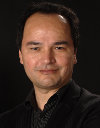Blog
The Internet Generation
 There's a a common presumption that the effects of the Internet such as globalisation and global marketing is creating an homogeneous youth culture. Examples of this might be Youth gangs in Auckland mimicking gangs in the United States or even the global marketing of Miley Cyrus. However, as shown by a recent United Nations study, this may not be the case:"Young people use, adapt and interpret global products in unique ways based on their own local cultures and experiences; in the process they create 'hybrid' cultural forms whose meanings vary according to local and national circumstances." (United Nations p.88)
There's a a common presumption that the effects of the Internet such as globalisation and global marketing is creating an homogeneous youth culture. Examples of this might be Youth gangs in Auckland mimicking gangs in the United States or even the global marketing of Miley Cyrus. However, as shown by a recent United Nations study, this may not be the case:"Young people use, adapt and interpret global products in unique ways based on their own local cultures and experiences; in the process they create 'hybrid' cultural forms whose meanings vary according to local and national circumstances." (United Nations p.88)The study, World Youth Report, 2005: Young People today, and in 2015, reveals the many ways that modern technology empowers youth. They live in a more democratic and socially aware society than that of previous generations and this environment supplies them with powerful tools for research, analysis, expression and play. As a result this new generation has been measured to be smarter than previous generations when they were the same age and this generation is more mobilised to take action.
However the Internet generation is not only youth who have grown up in the technology. It is the elderly that mostly use the Internet for email and research or businesses expanding online to reach a wider audience. What these new businesses are finding is that the ethics and modalities in this new environment change the way they do business in the real world - the Cadbury palm oil issue mentioned in my "Virtual Communities" blog is a perfect example of this. On the Internet time and space are compressed so it's easy for a user to compare a business with another business whether it be their pricing or the policies. This has lead to a more transparent and honest business practices which weren't a necessity in before the Internet. This is creating more ethical and trustworthy global business community.
The same influence can be seen in politics. In a recent discussion I had with a Labour Political Party member we noted how the present National Government had changed the way it handled the media. My proposition was that at the start of their Government they were very much like the Cadbury palm oil debacle but in recent months had changed their media policy to get a politician to take immediate responsibility for an issue and identify how they would resolve it. This tactic diverts responsibility from the political party and also reduces any back-scatter from blogs, newsletters, virtual communities like Facebook Groups and Mass Media.
If you've read this far through my recent blogs then you might be at the point where you're asking yourself, "So what is real any more?" I've been told that I'm a Cyborg and that the Internet is using me to evolve. That Virtual Communities have more control over the real world than expected. And finally, and most hard to believe, that Politicians might be getting honest! It sounds like the treatment for a Science Fiction film or the ravings of the mentally disturbed but perhaps the truth is we might be becoming more real because the "vale" or the effects of our previous inventions is being lifted. In my next blog I'll address this ideal of "real" more closely.
Bibliography
United Nations Department of Economic and Social Affairs, (2005) World Youth Report, 2005: Young people today, and in 2015. From 154.311 New Media book of readings. Massey University, Palmerston North.
 About
About
Brynn


